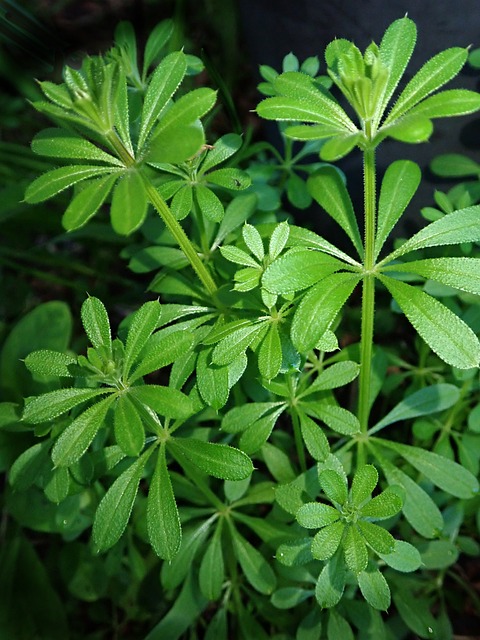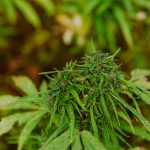The article delves into how THCA and CBD can potentially improve sleep quality, with each cannabinoid offering distinct benefits. THCA, a non-psychoactive precursor to THC, may aid sleep by alleviating anxiety and pain through its anxiolytic and analgesic effects, although its biphasic nature suggests careful dosing. CBD has been recognized for its ability to influence the sleep-wake cycle and manage conditions like insomnia and chronic pain, improving overall sleep quality. While both compounds are under investigation for their efficacy in addressing sleep disturbances, THCA appears to have a more pronounced impact on REM sleep and total sleep duration, making it a possible choice for those seeking deeper, more restorative sleep. CBD's broader effects on relaxation may offer benefits for general sleep quality without psychoactive influence. The legality and individual variability in sensitivity and product purity must be considered when using THCA flower, and users should consult healthcare professionals, especially if they have existing health conditions or are taking other medications. As research progresses, understanding the nuances between THCA and CBD for sleep enhancement becomes increasingly important for making informed decisions about these natural remedies.
exploration into the therapeutic properties of THCA flower, particularly its impact on sleep quality, reveals a landscape where its potential intersects with that of CBD. As we delve into the distinct effects of THCA versus CBD on sleep architecture and overall restfulness, it’s crucial to shed light on the side effects associated with THCA consumption. This article dissects these elements, offering insights into how THCA flower might influence sleep hygiene and what users should be aware of. Understanding the nuanced differences between THCA and CBD for sleep will empower readers to make informed decisions about their nightly rest and well-being.
- Unraveling the Potential of THCA Flower: A Comparative Analysis with CBD for Sleep
- THCA vs CBD: Divergent Effects on Sleep Architecture and Quality
- Navigating the Side Effects of THCA Flower: What Users Should Know
- The Interplay of THCA Flower and Sleep Hygiene: Benefits and Considerations
Unraveling the Potential of THCA Flower: A Comparative Analysis with CBD for Sleep
Cannabinoids have garnered significant attention in the realm of natural remedies, particularly for their potential impact on sleep quality. Among these, Tetrahydrocannabinolic Acid (THCA) and Cannabidiol (CBD) have emerged as prominent contenders due to their distinct effects. THCA, the raw form of THC found in raw cannabis plants, has been gaining traction for its non-psychoactive properties, which contrast sharply with the psychoactive nature of its isomer, THC. Conversely, CBD is renowned for its therapeutic benefits without the high associated with other cannabinoids. When considering THCA versus CBD for sleep, it’s crucial to understand how each interacts with the body’s endocannabinoid system.
THCA is believed to possess anxiolytic and analgesic properties, which can indirectly influence sleep by reducing anxiety and alleviating pain—common hindrances to a good night’s rest. Research suggests that THCA may have a biphasic effect; in lower doses, it could be stimulating, while higher amounts might promote relaxation and drowsiness. On the other hand, CBD has been widely studied for its sleep-promoting effects due to its capacity to influence the sleep-wake cycle by binding to receptors that regulate mood and anxiety. Studies have indicated that CBD may improve sleep quality in various populations, including those with insomnia or chronic pain. The comparative analysis of THCA versus CBD for sleep is still evolving, with preclinical studies and anecdotal evidence pointing towards both having potential benefits for sleep disturbances. However, the specific mechanisms and optimal dosages for each cannabinoid remain areas of ongoing research. As such, individuals interested in exploring these compounds for better sleep should consult with healthcare professionals to navigate the complexities and ensure safe and informed use.
THCA vs CBD: Divergent Effects on Sleep Architecture and Quality
THCA, or tetrahydrocannabinolic acid, and CBD, or cannabidiol, are two prominent compounds found in the Cannabis sativa plant. While both have garnered attention for their therapeutic potential, their distinct effects on sleep architecture and quality highlight the importance of understanding their differences when considering their use for sleep-related issues. THCA, which is the acidic precursor to the psychoactive compound THC, has been observed to have sedative properties that may facilitate a more restorative slumber by promoting longer periods of deep sleep. This could be beneficial for those experiencing sleep disturbances or insomnia. Conversely, CBD, a non-psychoactive component, is known for its anxiolytic and anti-inflammatory effects, which can indirectly improve sleep quality by addressing anxiety and pain, common factors that disrupt sleep cycles.
In terms of THCA vs CBD for sleep, research suggests that THCA’s interaction with the body’s endocannabinoid system may influence REM sleep phases and sleep duration more significantly than CBD. This could be particularly advantageous for individuals seeking to enhance the restorative aspects of their sleep. On the other hand, CBD may offer a broader range of benefits for overall sleep quality by promoting relaxation without the psychoactive effects associated with THC. Both compounds have unique mechanisms that can affect sleep architecture differently, and their use should be tailored based on individual needs and sleep disorders. As such, understanding the nuanced impacts of THCA versus CBD on sleep is crucial for optimizing restorative sleep patterns and improving overall well-being.
Navigating the Side Effects of THCA Flower: What Users Should Know
Navigating the effects of THCA flower requires a nuanced understanding of its interactions within the human body. Tetrahydrocannabinolic acid A (THCA) is a non-psychoactive cannabinoid found in hemp and cannabis plants, which has garnered attention for its potential therapeutic properties. Unlike its psychoactive counterpart THC, THCA doesn’t induce the ‘high’ commonly associated with cannabis use. Users considering THCA flower for sleep or other health-related reasons should be aware that while it may offer benefits similar to CBD in promoting restful sleep, the effects can vary based on individual physiology and dosage. Preliminary studies suggest that THCA may have anxiolytic and analgesic effects, which could contribute to better sleep quality. However, as with any dietary supplement or herb, it’s crucial to start with a low dose to gauge personal sensitivity before gradually increasing intake. Users should also be cautious about the source of THCA flower, as its legal status varies by region and its purity can differ between products. It’s advisable to consult with a healthcare provider before incorporating THCA into any health regimen, especially if one has underlying health conditions or is taking other medications. Understanding the subtle differences between THCA and CBD, particularly in their effects on sleep, involves ongoing research. Users should stay informed about the latest scientific findings to make well-informed decisions regarding their use of cannabinoids for sleep enhancement or other health concerns.
The Interplay of THCA Flower and Sleep Hygiene: Benefits and Considerations
Cannabinoids, such as tetrahydrocannabinolic acid (THCA) and cannabidiol (CBD), have been subjects of increasing interest in the realm of sleep hygiene. THCA, the non-psychoactive precursor to THC, is found in hemp and cannabis plants and has garnered attention for its potential therapeutic benefits. Unlike its psychoactive counterpart, THCA does not induce intoxication, making it a more viable option for those seeking relief from various conditions without the mind-altering effects. Research suggests that THCA may interact with the body’s endocannabinoid system to influence sleep patterns positively.
In contrast to CBD, which is often highlighted for its calming and anxiety-reducing properties that can indirectly improve sleep quality, THCA is believed to directly engage with the body’s CB1 and CB2 receptors, which play a role in regulating sleep-wake cycles. Users considering THCA vs CBD for sleep may find that THCA could offer more immediate effects on sleep initiation and duration due to its affinity for these receptors. However, it is crucial to approach the use of THCA flower with caution, as individual responses can vary significantly based on factors like dosage, method of consumption, and personal physiology. Prospective users should consult with healthcare professionals before integrating THCA into their sleep hygiene routine, especially if they are taking other medications or have underlying health conditions. By understanding the nuances between THCA and CBD, individuals can make informed decisions to support their sleep hygiene and overall well-being.
THCA flower, or tetrahydrocannabinolic acid, has garnered attention in the realm of sleep management, particularly when compared with CBD. This article has delved into the intricacies of how THCA and CBD influence sleep architecture and quality, offering a nuanced understanding of their divergent effects. While both compounds present unique potential for improving sleep, it is imperative to be well-versed in the side effects associated with THCA flower consumption. Users should approach its use with careful consideration, as its impact on sleep hygiene, though promising, must be balanced with an awareness of its side effects. Ultimately, the choice between THCA and CBD for sleep should be informed by individual needs, preferences, and responses, ensuring a well-rested night’s sleep without compromising health.


